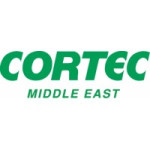When it comes to metal objects, rust can be a persistent and unsightly problem. Rust not only diminishes the aesthetic appeal of metal surfaces but also weakens their structural integrity over time. Thankfully, there are several effective rust removers for metal available that can help restore the shine and durability of your metal items. In this blog post, we will explore some popular rust removers and discuss their features, application methods, and effectiveness in removing rust from various metal surfaces.
-
Vinegar: Vinegar is a natural and inexpensive rust remover that is present in practically every home. Its strong acidity aids in the dissolution of rust and the restoration of the metal's luster. To use vinegar, soak the rusted item for several hours or overnight in a jar filled with pure vinegar. After that, clean the rust away using a brush or cloth. While vinegar works well for minor rust, severe rust may necessitate numerous treatments or additional procedures.
-
Lemon Juice: Lemon juice, like vinegar, contains citric acid, which functions as a moderate rust remover. Squeeze fresh lemon juice onto the rusty area, then scrape with a brush or sponge. Lemon juice is especially effective for minor rust patches and objects with fragile surfaces.
-
Commercial Rust Removers: There are many commercial rust removers on the market, each with its own set of features. These treatments are often in liquid or gel form and contain specialist chemicals designed to effectively dissolve rust. Before using any commercial rust remover, carefully read the instructions and follow the safety precautions. Naval Jelly, Evapo-Rust, and Rust-Oleum are some common brands.
-
Electrolysis: Electrolysis is a method of removing rust from metal items by using an electric current. It is especially beneficial for large or badly corroded things. You will need a container, a sacrificial electrode (typically composed of steel), water, and a battery charger or power supply to use this approach. Rust is turned back into metal by immersing the rusted object and the sacrificial electrode in water and running a low-voltage electric current through them. Because electrolysis necessitates precise setup and precautions, it is critical to follow a detailed instruction or seek professional help.
-
Abrasive Methods: Abrasive procedures such as sanding, wire brushing, or utilizing steel wool can be beneficial for obstinate rust. These methods entail physically eliminating the rust from the metal surface by cleaning or sanding it. While abrasive procedures are effective, they are time-consuming and may cause scratches or metal damage. As a result, it's critical to use them with caution and adhere to strict safety recommendations.
Conclusion:
Rust is an inescapable issue with metal objects, but it does not have to be permanent. You can restore the sheen and longevity of your metal items by using one of the several rust removers available. There are solutions for every sort of rusted metal surface, from basic things like vinegar and lemon juice to industrial rust removers and more specialized processes like electrolysis. Remember to select the approach that best meets your needs, attentively follow the directions, and take all essential safety precautions. You may then wave goodbye to rust and enjoy your metal goods in their natural state.




You must be logged in to post a comment.